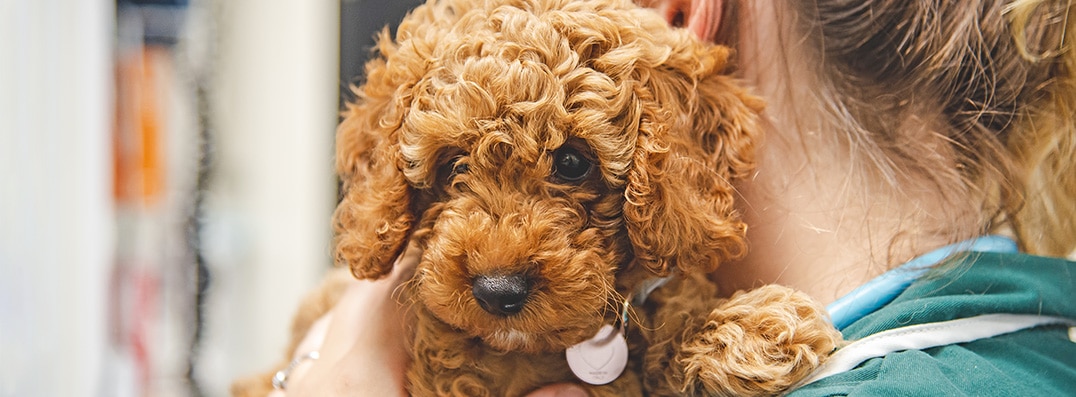What is it?
Hyperthyroidism is one of the most common hormone problems (endocrinopathy) seen in older cats in the UK. The condition causes an overproduction of thyroid hormones that is usually the result of a benign adenoma (growth) in one or both of the thyroid glands. With time, some these growths will transform into a more aggressive carcinoma.
Common clinical signs include:
- weight loss despite a normal or increased appetite
- increased drinking and urination
- poor coat quality
- hyperactivity or ‘kitten like’ behaviour
- vocalising or crying at night and restlessness
- gastrointestinal upset such as diarrhoea and/or vomiting
- extra strain on the heart and subsequent heart disease (sometimes even associated with heart failure)
- increased blood pressure (and increased risk of blindness or stroke)
Diagnosis
If the clinical signs and history fit, we will likely recommend a blood test to check the blood levels of total thyroid hormone. In some animals, we may also be able to feel an enlarged thyroid gland in the neck. If the thyroid hormone levels are high, then the diagnosis is confirmed. In some cases, the result may be equivocal and we may recommend repeat testing at a later date or checking different thyroid hormone levels by a different method.
Hyperthyroidism is a disease of older cats and this unfortunately means that some may have concurrent disease, especially kidney problems and heart disease. If your cat does have concurrent problems, this might affect the treatment options so we will usually recommend additional screening tests.
Treatment Options
The good news is that hyperthyroidism is a common and treatable condition. There are several treatment options, some which offer a permanent solution (radioiodine), a semi-permanent solution (surgery), and others that will manage the condition (medication or special food).
Because treatment of hyperthyroidism can ‘un-mask’ concurrent problems, such as kidney disease, we usually start with medication to check that there is nothing else to make you aware of before pursuing alternative treatment options.
Treatment Option 1: Radioiodine
Radioiodine is the treatment of choice in both veterinary and human medicine and we offer this treatment at our Radioiodine Unit based at the Eastwick Lodge, Harlow surgery.
Radioiodine (radioactive I131) is given by injection under the skin. It is then taken up by the abnormal thyroid tissue only, which it destroys. It does not affect the rest of the body and offers a cure rate of approximately 92% (the full benefit can take six months).
The health and safety regulations regarding radioiodine treatment in cats are much stricter than for humans and cats need to stay in specialized centres for two weeks after treatment. Your cat will be well looked after by trained nurses during this time but no visiting is allowed and the patients cannot go home before the 14 days have passed.
Please see our Radioiodine client information sheet for more details on this treatment and the aftercare requirements. Radioiodine is not suitable for all patients and the cost of the radioiodine treatment is £2,000 (incl. VAT, but excluding pre- and post-treatment tests).
Treatment Option 2: Surgery
Surgery (thyroidectomy) is usually carried out on a day-patient basis and will be most effective when the disease involves only one thyroid gland but this disease is more commonly present in both thyroid glands.
Great care is taken to avoid damaging the parathyroid glands (which are very close to the thyroid and control calcium levels) but if affected during a bilateral operation the low calcium levels can be a serious and potentially fatal complication. This risk is avoided if only one side is removed. It is not uncommon that the remaining thyroid gland becomes a problem later but we do not generally perform a second side thyroidectomy due to the risks so the options for treatment at that point are typically radioiodine, medication, or special diet.
The cost of unilateral thyroidectomy (single side surgery) is approximately £700 (incl. VAT, but excluding pre- and post-treatment tests).
Treatment Option 3: Medication
Anti-thyroid medication deactivates the thyroid hormones rather than addressing the underlying problem in the thyroid gland and most cases require lifelong, twice daily treatment. There are preparations available as tablets or as liquid. A trans-dermal gel applied to the ear can be considered in select cases but has less predictable results and carries a higher risk for humans. Bloods tests will be needed to ensure control is achieved and then every 3 months to check control is maintained. It is not uncommon to have to increase the dose over time.
Not all cats tolerate the medication well and some may have side effects such as vomiting, skin rashes or blood problems. The tablets should not be crushed and all anti-thyroid medications should be handled with gloves by women of child bearing age and during pregnancy.
Cost is dependent on many factors, but the average cost per year of medical treatment is approximately £950 (incl. VAT, but excluding any other ancillary tests, additional medications, or changes in dose).
Treatment Option 4: Special Diet
A special diet that is iodine depleted is available (Hills Y/D ®) and can bring down the thyroid hormone levels but only if it is used as the sole diet. This can be really difficult in a multi-cat household or if your cat hunts, is a fussy eater, or has specific dietary requirements. If your cat eats anything else, then the benefit of the diet is lost. There is no ‘dose’ and the cost of initial investigation and the cost of one year’s food is approximately £800 (incl VAT but excluding any other ancillary tests or additional medications).

